ASEAN
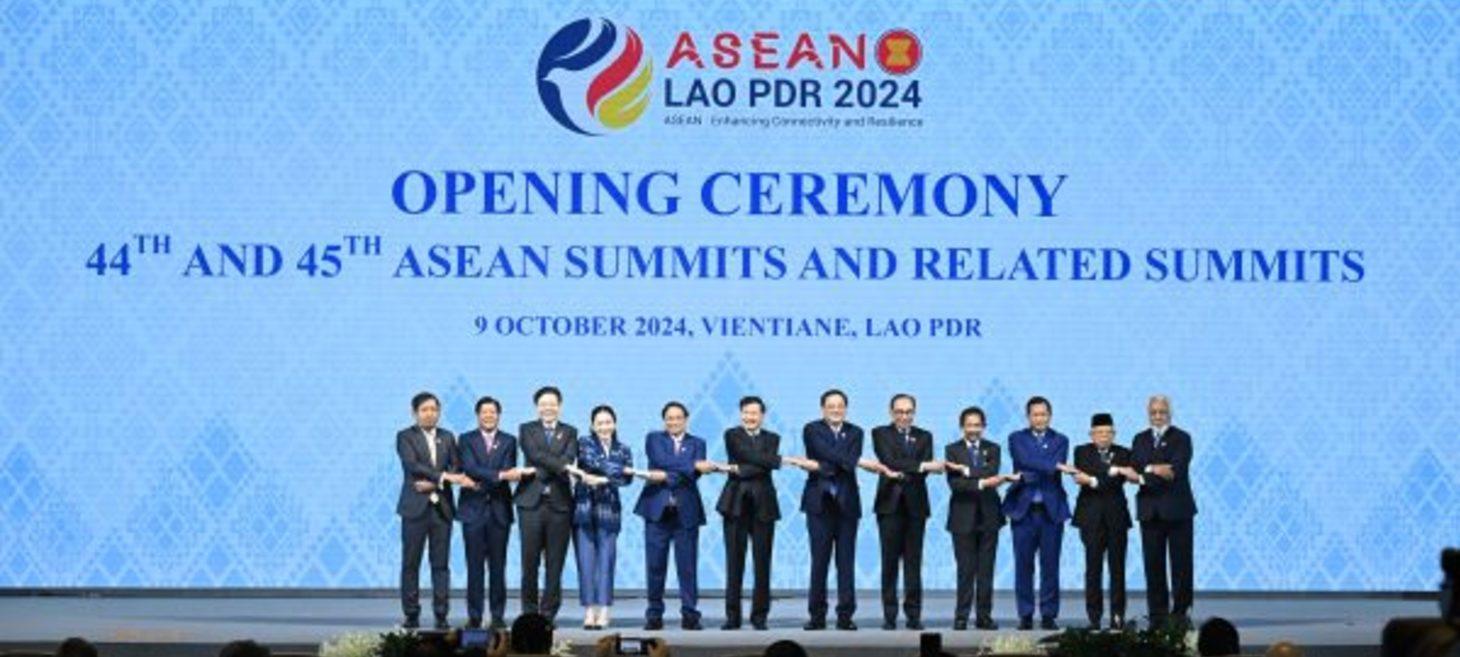
Thailand to Host ASEAN Talks on Myanmar Conflict This Month
Southeast Asian foreign ministers will meet in Bangkok on December 20 to discuss resolving Myanmar’s civil war, which has persisted since the 2021 military coup. The meeting, initiated by ASEAN’s current chair Laos, will begin with informal discussions among the ASEAN troika (Laos, Indonesia, and Malaysia) before involving all member states. The talks aim to revive ASEAN’s Five-Point Consensus peace plan, which calls for an immediate cessation of violence and inclusive dialogue but has largely failed due to the junta's refusal to engage with resistance groups or halt attacks. Thailand’s new government is taking a more active role in facilitating dialogue, while China has increased its involvement by supporting the junta and pressuring armed groups to declare ceasefires, hoping to stabilize the situation and back the junta's 2025 election plans. However, with both sides entrenched in a zero-sum conflict, prospects for meaningful negotiations remain dim despite shifting dynamics on the ground.
Census & Elections

Junta’s 2025 Sham Election Widens Country Fragmentation
The State Administration Council (SAC) of Myanmar has announced plans to hold general elections in 2025, focusing on areas deemed stable, with preparations underway by the SAC, certain political parties, and groups that have signed the nationwide ceasefire agreement. However, opposition groups, including the Karen National Union (KNU), Kachin Independence Army (KIA), Karenni National Progressive Party (KNPP), and Chin National Front (CNF), along with the National Unity Government (NUG) and People’s Representatives Committee for Federal (PRCF), oppose the elections, arguing that they are meaningless without a political dialogue agreed upon by all parties. The root of Myanmar's issues lies in the Constitution, particularly the military-drafted 2008 Constitution, which has caused territorial disputes and division among ethnic groups. The military's divide-and-rule policy exacerbates these divisions, and the planned elections under the current Constitution are likely to worsen the situation. The ongoing problems highlight the need for a new Constitution that reflects the people's will to achieve unity and resolve longstanding conflicts.
Conflict
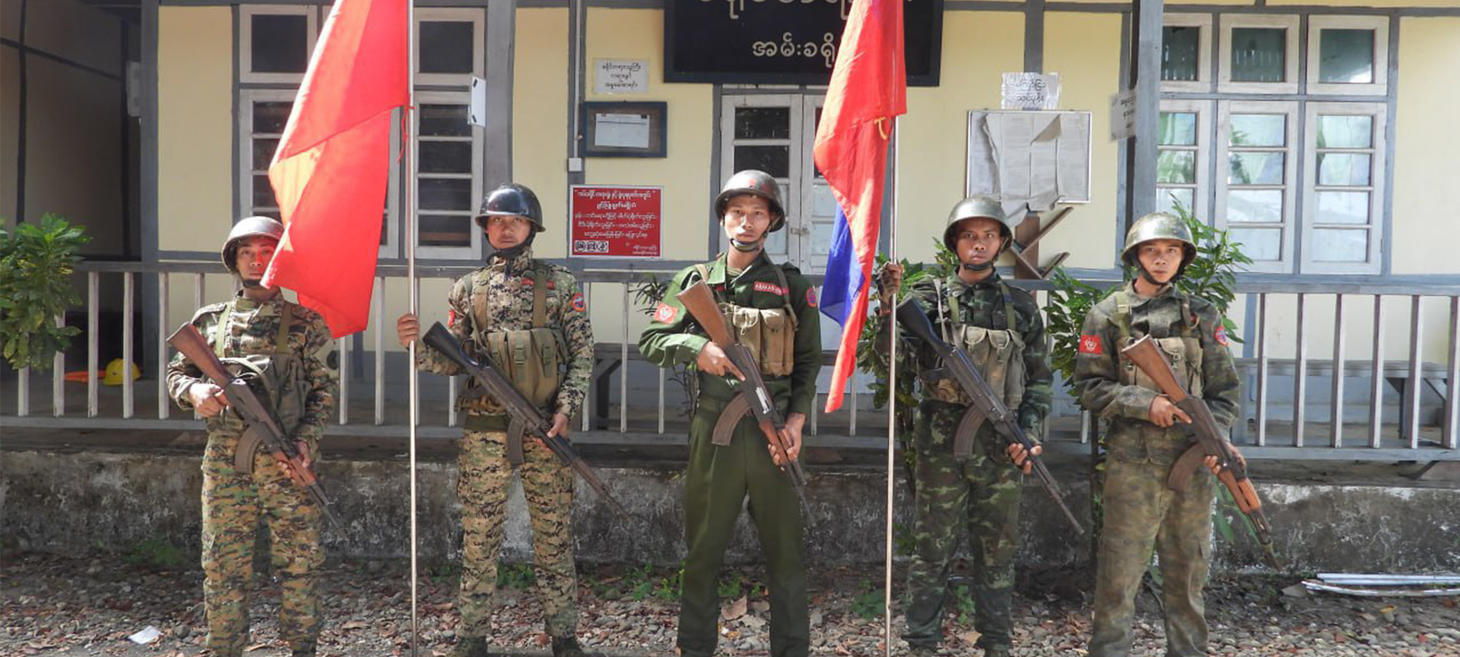
Arakan Army Offensive on Brink Seizing Ann
The Arakan Army is on the verge of seizing Ann Township in Rakhine State, Myanmar, amid intense fighting with the military. The AA has reportedly taken control of several nearby villages and is pushing towards Ann, which would be a significant gain for the ethnic armed group. The situation remains fluid, with both sides claiming successes and suffering casualties. The battle for Ann reflects broader conflicts between the military and various ethnic armed organizations across Myanmar, particularly in Rakhine State.
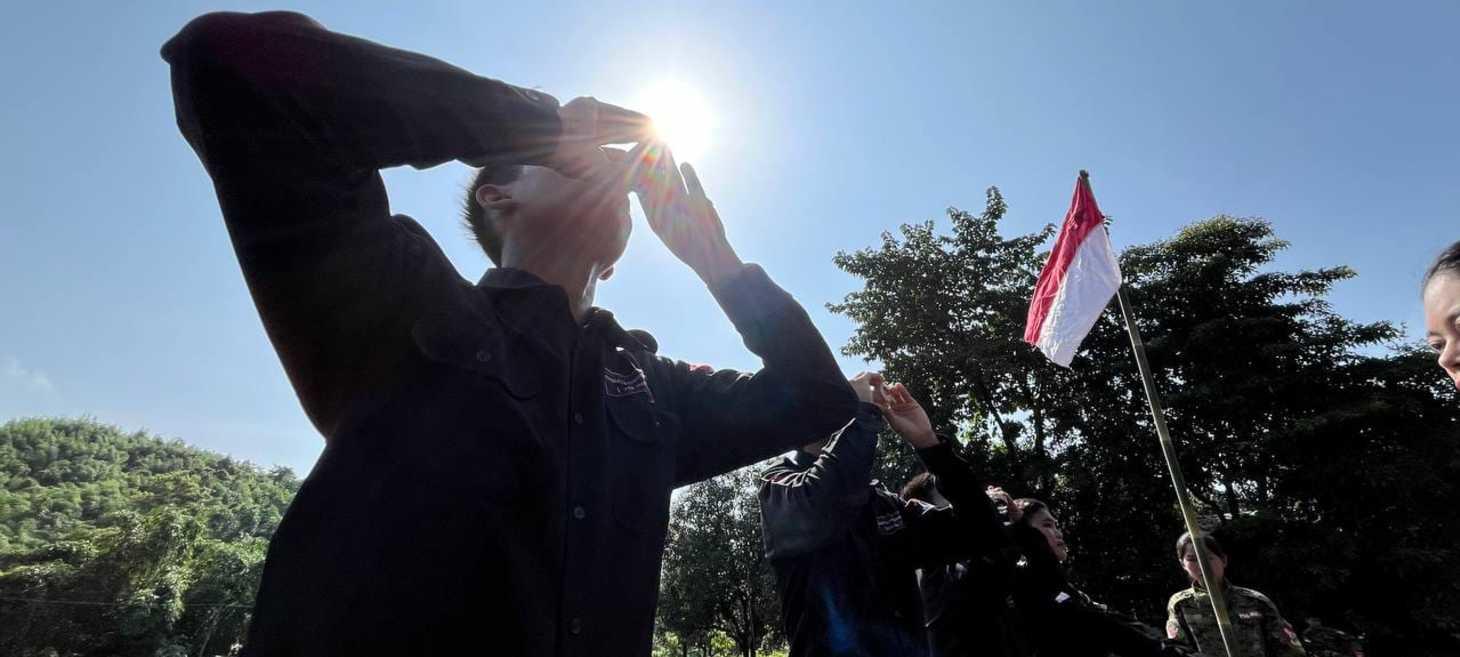
More Myanmar junta soldiers killed, captured on road to Rakhine State’s Ann Township
Resistance forces allied with the Arakan Army (AA) ambushed Myanmar junta troops along the Ann-Padan road, a key route linking Rakhine State and Magway Region, in two separate incidents on Wednesday. The People’s Revolution Alliance (PRA) destroyed two military vehicles carrying supplies and killed at least nine soldiers, while the Asho Chin Defence Force (ACDF) captured 12 troops, including a captain, and seized weapons. Since late October, resistance groups have captured at least 40 junta soldiers in the area as the regime attempts to reinforce Ann Township, where its Western Regional Military Command (RMC) is headquartered. The AA has intensified efforts to take Ann, having already captured key bases nearby, while junta forces rely on artillery support from positions in Ngape Township. Resistance groups claim to treat prisoners of war humanely, providing medical care and equal food rations. The junta is determined to retain Ann following the fall of its Northeastern RMC headquarters in Lashio in August.
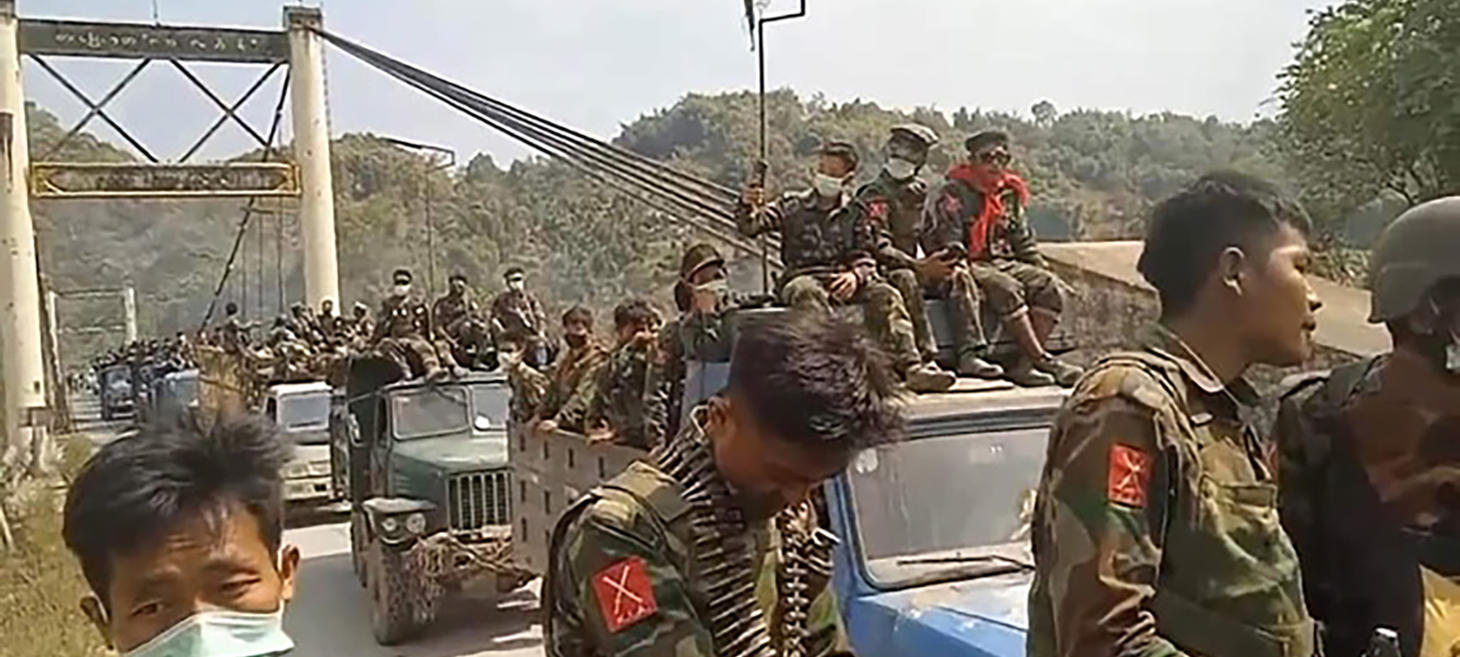
KIA Seizes Myanmar Junta Strongholds in Kachin Power Hub
The Kachin Independence Army (KIA) has captured several key Myanmar military outposts in the strategic area surrounding the Tarpein hydropower plants in Kachin State’s Momauk Township. These facilities are a critical power source for the region, including neighboring Shan State. The KIA's offensive, part of intensified operations against the junta, has reportedly inflicted heavy casualties on junta forces while disrupting their control over this vital infrastructure. The loss of these strongholds is a significant blow to the military's presence in the region, further challenging its ability to maintain authority amidst escalating resistance efforts.
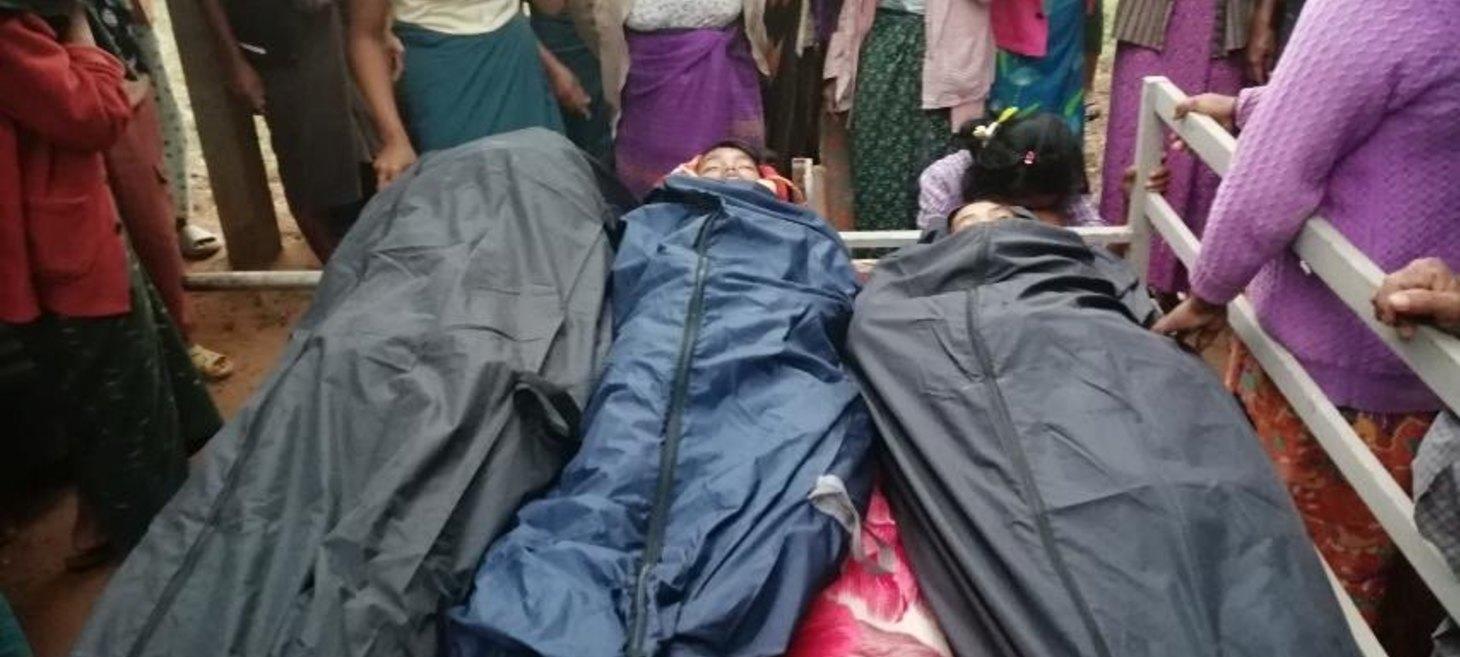
Four days of Myanmar junta airstrikes leave eight civilians dead in Mandalay’s Natogyi Township
At least eight civilians, including three children, were killed in four days of junta airstrikes in Mandalay Region’s Natogyi Township, following drone attacks by anti-regime groups on junta positions in the area. The strikes began Monday, targeting villages and a Korean language school, killing two people in Na Be Myit. On Tuesday, an elderly woman and her grandchild were killed in Kun Ohn, while a couple in Thu Htay Kone sustained injuries. On Wednesday, bombs dropped on a monastery in Lone Taw killed an 11-year-old boy and injured eight others, including displaced civilians sheltering there. The latest attack on Thursday morning killed a family of three, including a nine-year-old boy, when bombs hit their toddy palm farm near Aung Pan Kone. Junta forces also targeted other villages with artillery and airstrikes, causing widespread fear and displacement among locals.
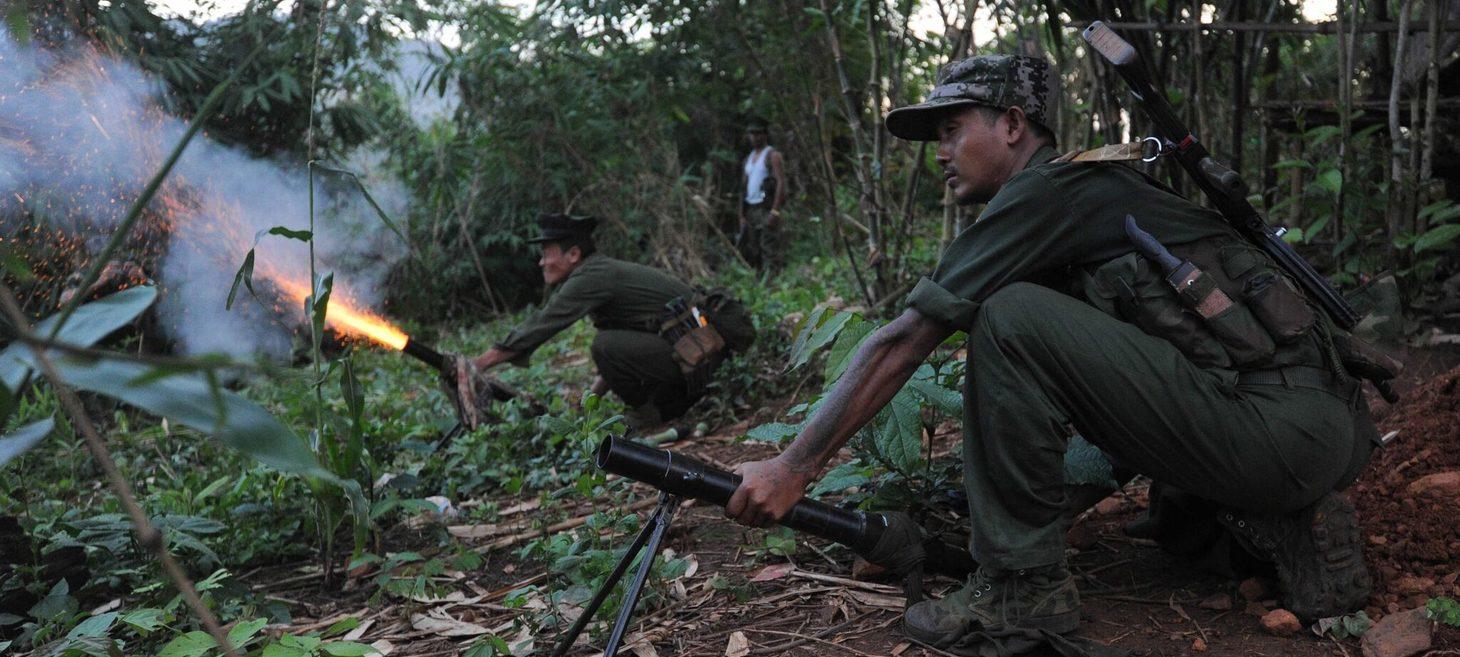
KIA and allies launch attacks on bases near Myanmar junta stronghold of Bhamo
On Wednesday, the Kachin Independence Army (KIA) and allied resistance forces launched a new offensive against the junta-controlled town of Bhamo in southern Kachin State. The attack began early morning with assaults on Infantry Battalion 47 base south of the town, sparking fierce clashes in multiple locations. The Myanmar military responded with heavy artillery fire and airstrikes, deploying fighter jets for aerial bombing raids. Fighting has been reported between Bhamo and nearby towns of Momauk and Mansi, with the KIA claiming to have encircled several junta bases in Mansi Township. The military has closed off escape routes, trapping many residents who attempted to flee. This offensive is part of the KIA's broader campaign that began in March, which has already resulted in the capture of several key towns in Kachin State. Bhamo, a significant junta stronghold housing multiple military units, is now under threat as the KIA expands its control in the region.
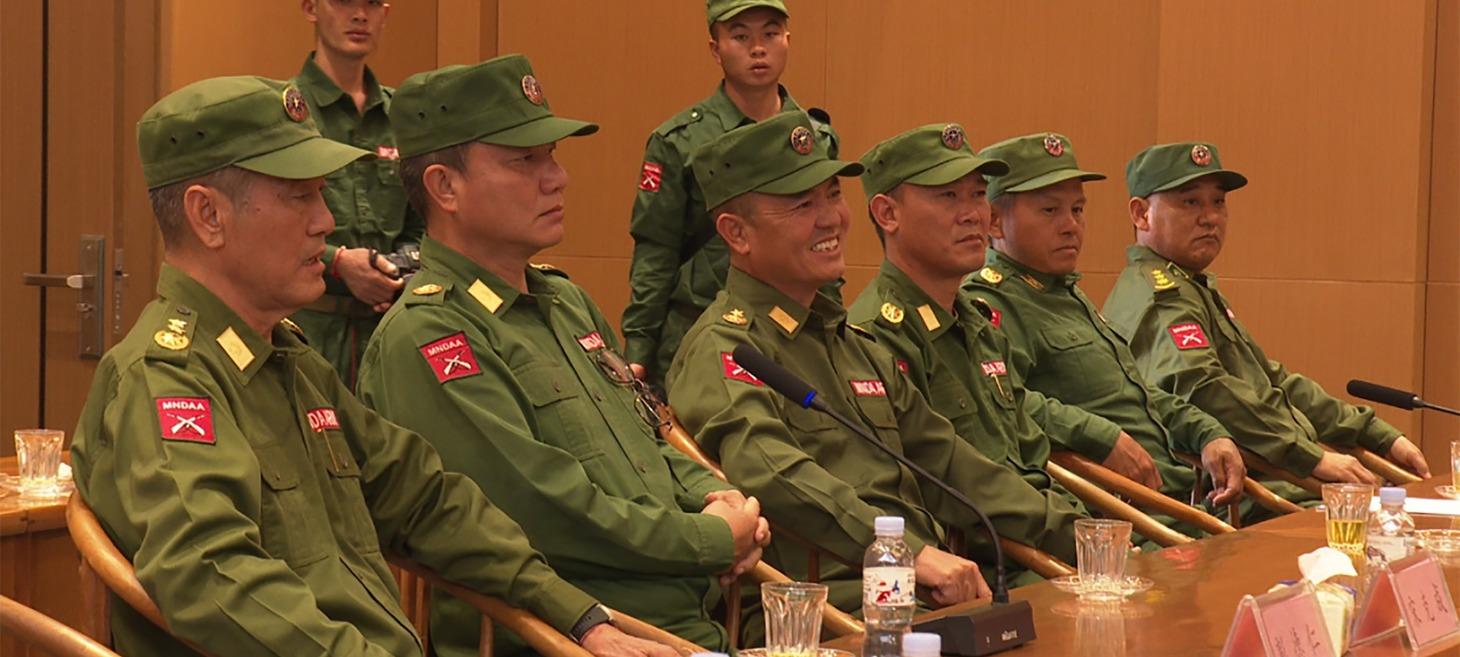
MNDAA, TNLA, SAC AND CHINESE MEDIATION: Another Chinese brokered Haigeng Ceasefire in the making?
The Myanmar National Democratic Alliance Army (MNDAA) and the Ta’ang National Liberation Army (TNLA) have expressed readiness to negotiate peace with the military junta and China, reiterating their willingness to engage in talks since September. Under pressure from China, the MNDAA has pledged not to attack key cities or collaborate with groups opposed to China. The Three Brotherhood Alliance's Operation 1027, which captured several military outposts, stalled due to a Chinese-brokered ceasefire that later collapsed, leading to resumed fighting. China's intervention shifted from supporting the alliance to backing the military regime, imposing blockades and sanctions on the MNDAA and TNLA. Both groups have issued statements emphasizing their commitment to peace talks while maintaining their right to self-defense. The MNDAA seeks a genuine self-administered zone, while the TNLA aims for a Ta’ang State within a federal union. The situation remains tense, with the junta preparing to retake Lashio, and the outcome of potential talks depends on China's mediation and the willingness of all parties to compromise.
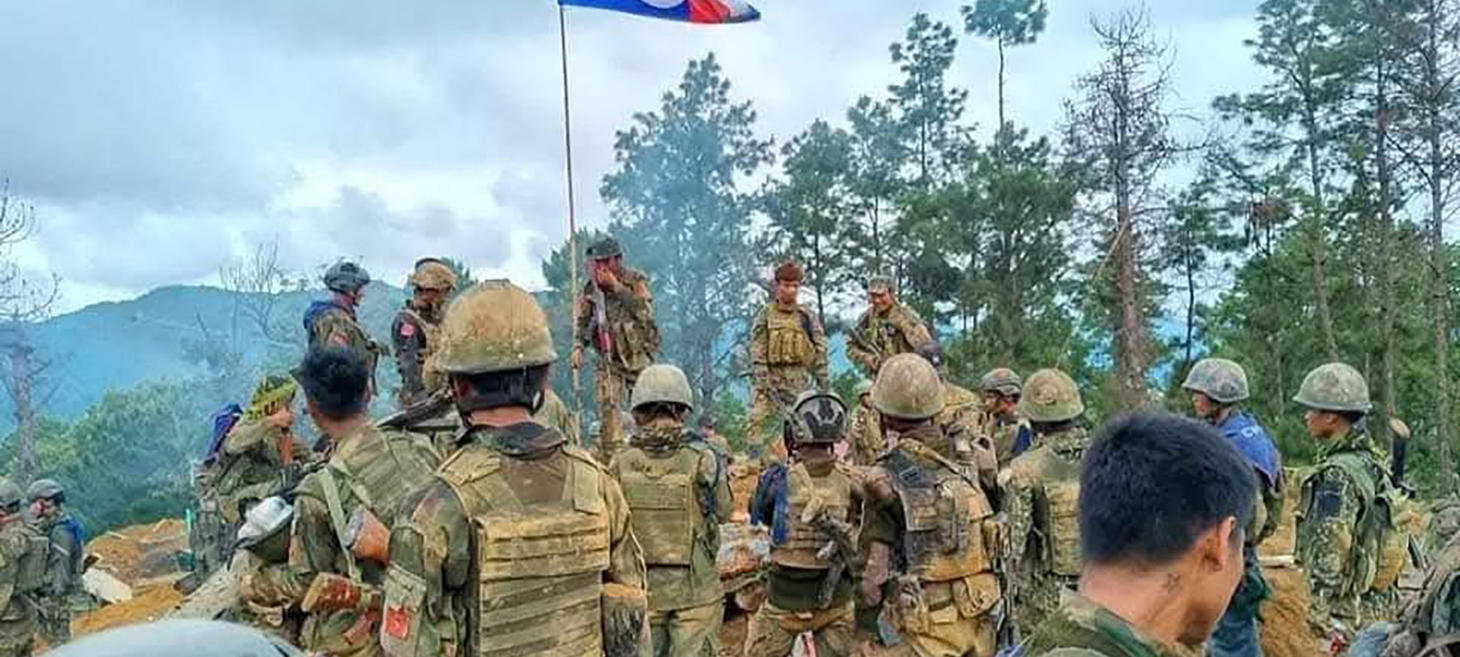
Chin Forces Capture Strategic Myanmar Plain Between Hakha and Thantlang
Chin resistance forces have successfully captured a strategic plain between Hakha and Thantlang in Myanmar, which is significant for controlling access routes in the region. This victory is part of ongoing efforts by ethnic armed groups to challenge the military junta's control. The capture of this area not only disrupts the junta's supply lines but also strengthens the Chin forces' position in the conflict. This development highlights the persistent resistance against the junta and the strategic maneuvers by ethnic groups to gain territorial advantage in Myanmar's complex civil war landscape.
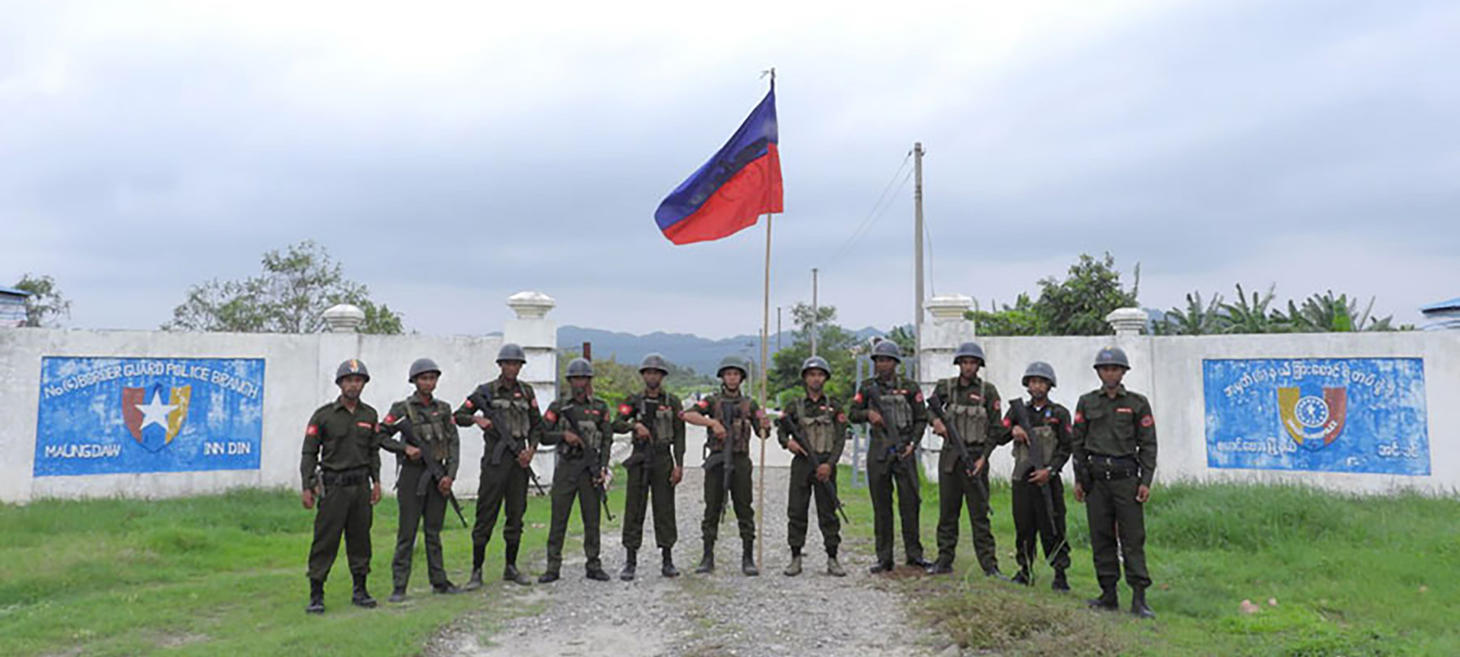
AA Takes Complete Control of Myanmar-Bangladesh Border After Seizing Maungdaw
The Arakan Army (AA) has taken full control of the Myanmar-Bangladesh border after seizing Maungdaw, a strategic town in Rakhine State. This move consolidates the AA's influence in the region, allowing them to control cross-border activities and trade routes. The capture of Maungdaw is a significant blow to the Myanmar military junta, as it loses a critical area that connects Myanmar with Bangladesh. This development underscores the growing power and territorial control of the AA in Rakhine State, further complicating the conflict dynamics in Myanmar.
Conscription
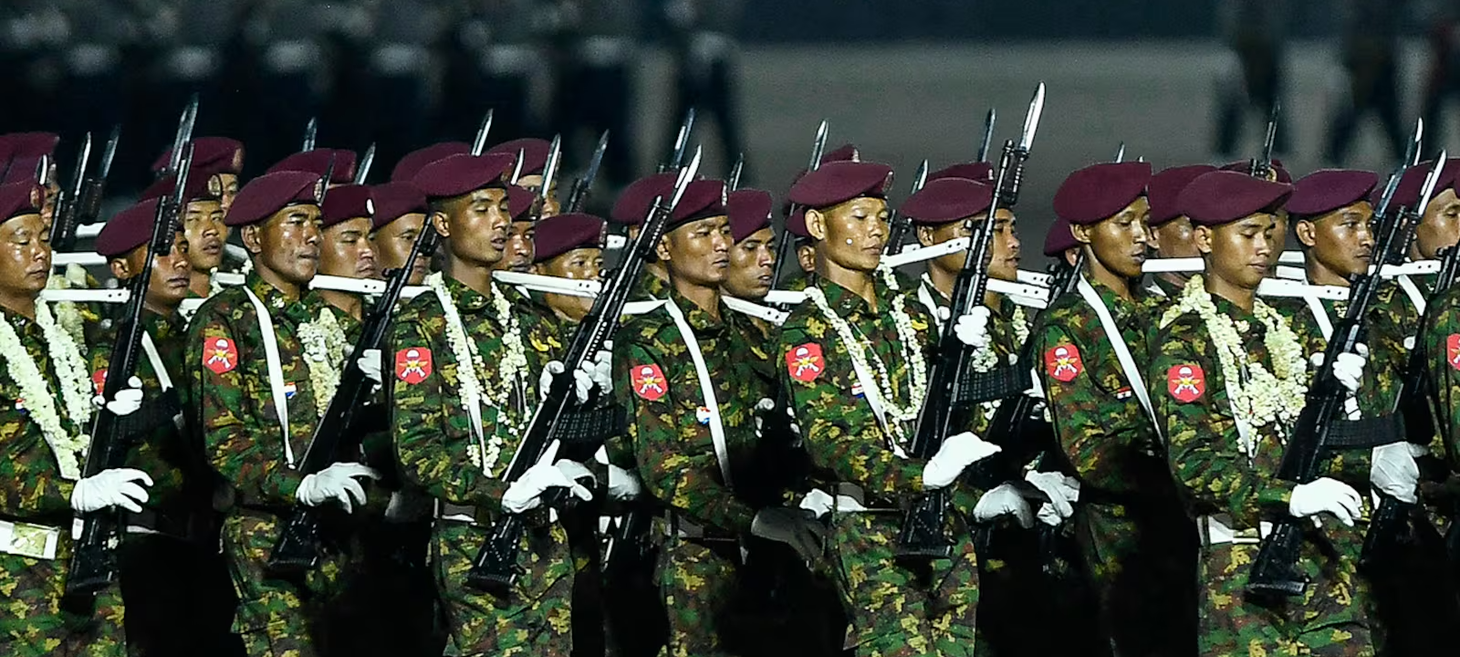
Families in Myanmar forced to pay ransoms to spare members from military service - Radio Free Asia
The Myanmar military is reportedly using conscription as a means to extort money from families, demanding payments to exempt their sons from military service. This practice has become widespread amid the military's struggle to recruit new soldiers due to ongoing conflicts and low morale. Families are often forced to pay substantial sums to avoid conscription, with some resorting to selling property or taking loans. The military's recruitment challenges are exacerbated by defections and casualties, leading to increased pressure on families. This situation highlights the military's desperation and the financial burden placed on civilians, further fueling resentment against the junta.
Crime & Narcotics
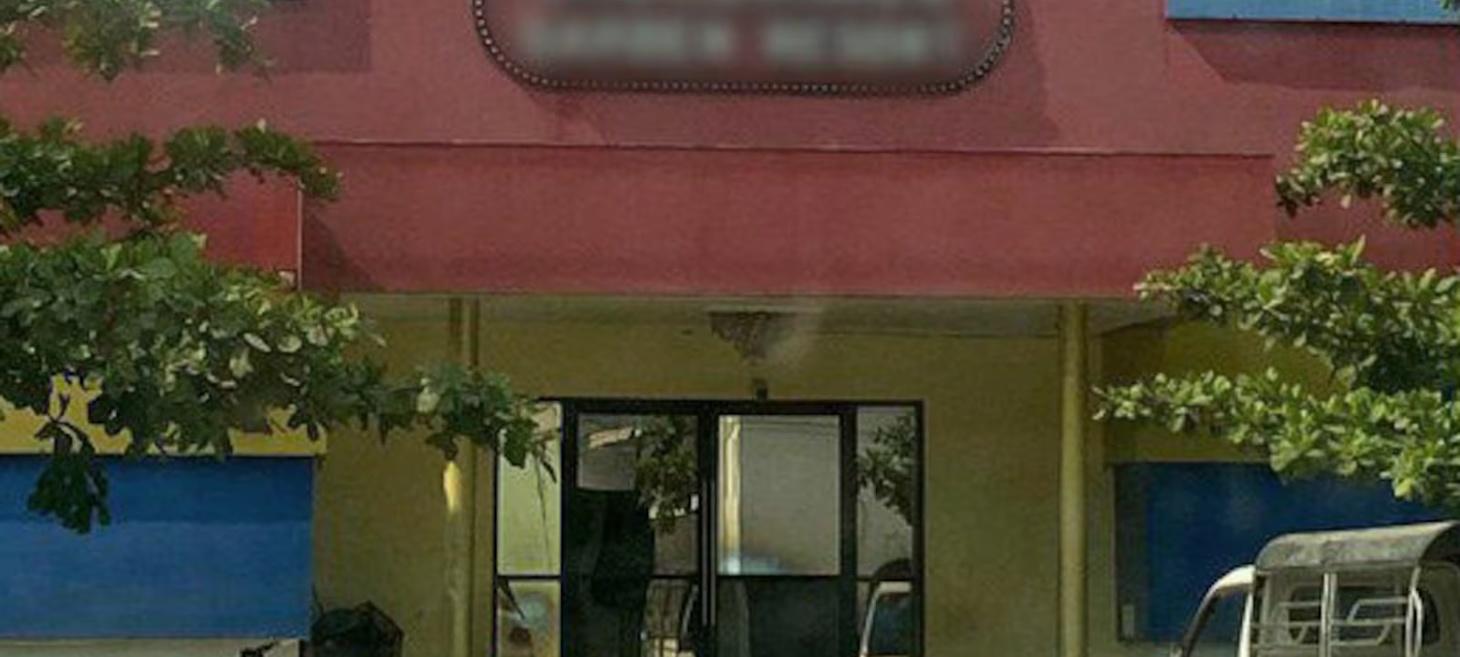
Lao teen says she’s been released from Chinese scam center in Myanmar - Radio Free Asia
A 19-year-old Laotian woman, trafficked to work at the Chinese-run "Casino Kosai" scam center in Myanmar's Myawaddy, has been freed after enduring two years of abuse and forced labor. Initially lured with promises of a factory job in Thailand, she was sold to the scam operation where she faced daily beatings, torture with cattle prods, and grueling 19-hour workdays for failing to meet targets. Her release, reportedly agreed upon by the scam operators, brought immense relief to her mother, who had been desperate to bring her home. The woman is now in Thailand’s Mae Sot district, awaiting her return to Laos. The Lao Ministry of Public Security acknowledged the challenges of rescuing victims from scam centers in conflict zones outside Myanmar junta control, while Thai authorities have not provided further details on her case.
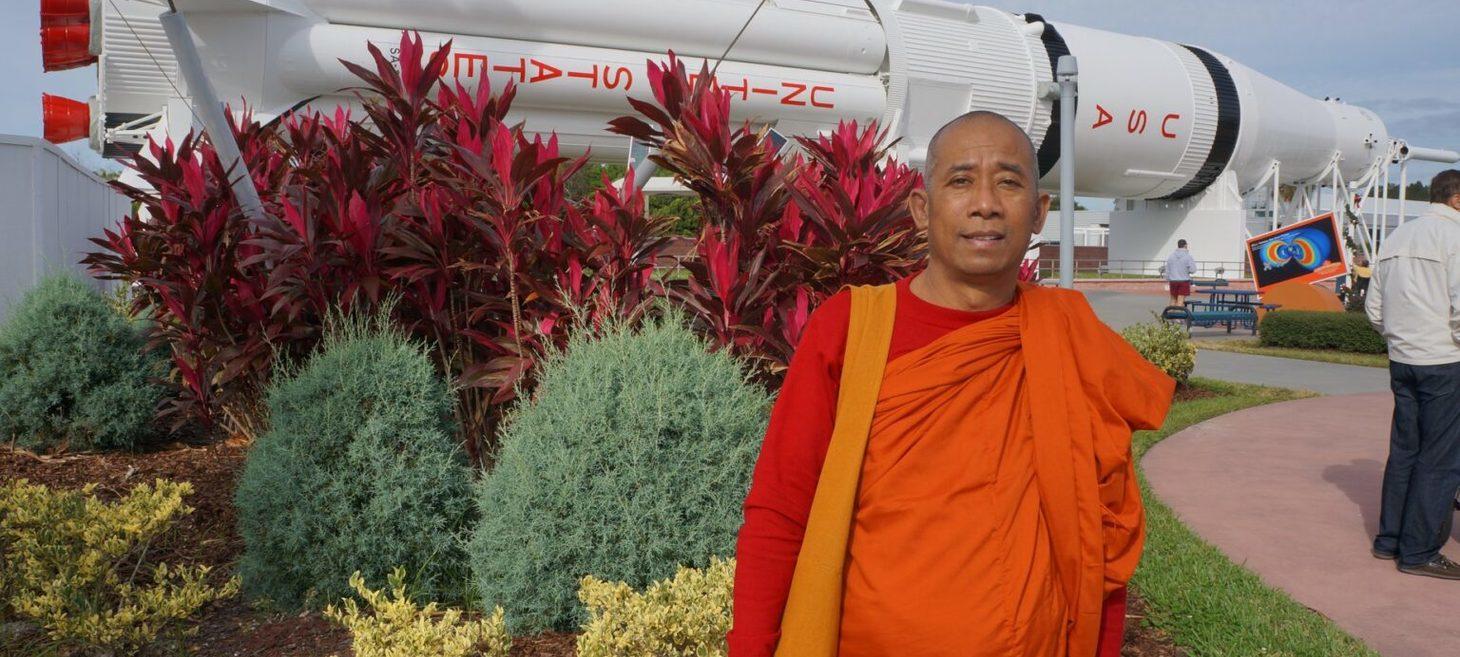
Myanmar junta charges American citizen monk with terrorism
Sayadaw Badanda Pinnya Zawta, a 64-year-old monk and former political prisoner now residing in the United States, is set to face trial in Myanmar next week after being detained and allegedly beaten by junta authorities. The military has charged him under multiple laws, including the Counterterrorism Law, which could result in a life sentence. Pinnya Zawta, a U.S. citizen, had lawfully applied for a visa and returned to Myanmar on November 5 for a brief visit to attend a religious ceremony. He was arrested eight days later, reportedly stripped of his robes, interrogated, and transferred to Insein Prison. Friends and fellow activists have expressed concern for his well-being, hoping his U.S. citizenship will expedite his release. Known for his leadership in nonviolent resistance against military oppression, including his role in the 2007 Saffron Revolution, Pinnya Zawta has a history of arrests and imprisonments for his activism. This visit marked his first return to Myanmar since the 2021 military coup.
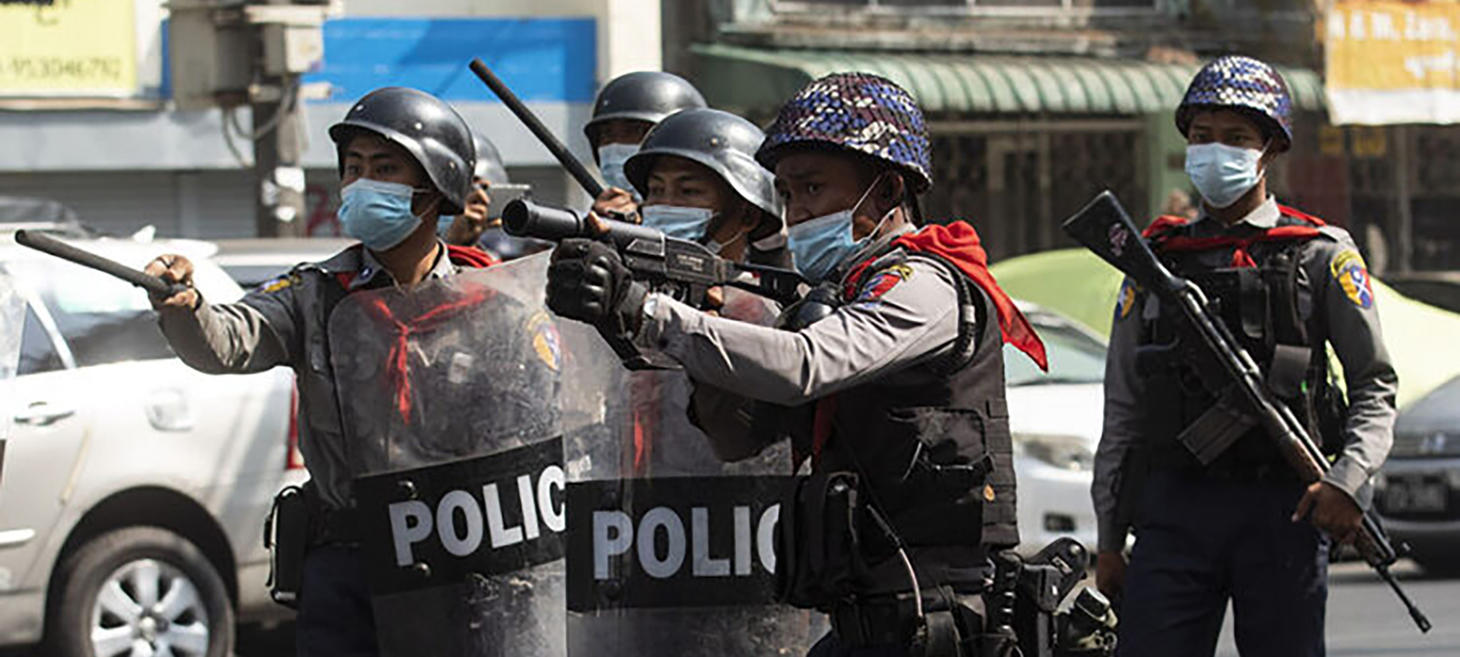
Myanmar Junta Swells Arrest Log for Online Criticism
The Myanmar military junta has intensified its crackdown on online dissent by arresting individuals for criticizing the regime on social media platforms. This move is part of a broader effort to suppress freedom of expression and control the narrative within the country. The junta has been actively monitoring online activities and has expanded its list of offenses to include various forms of digital communication deemed critical of the government. These actions have raised concerns among human rights organizations and activists, who view them as a violation of fundamental rights and an attempt to stifle opposition voices. The arrests are seen as a continuation of the junta's strategy to maintain power by silencing dissent and controlling information flow.
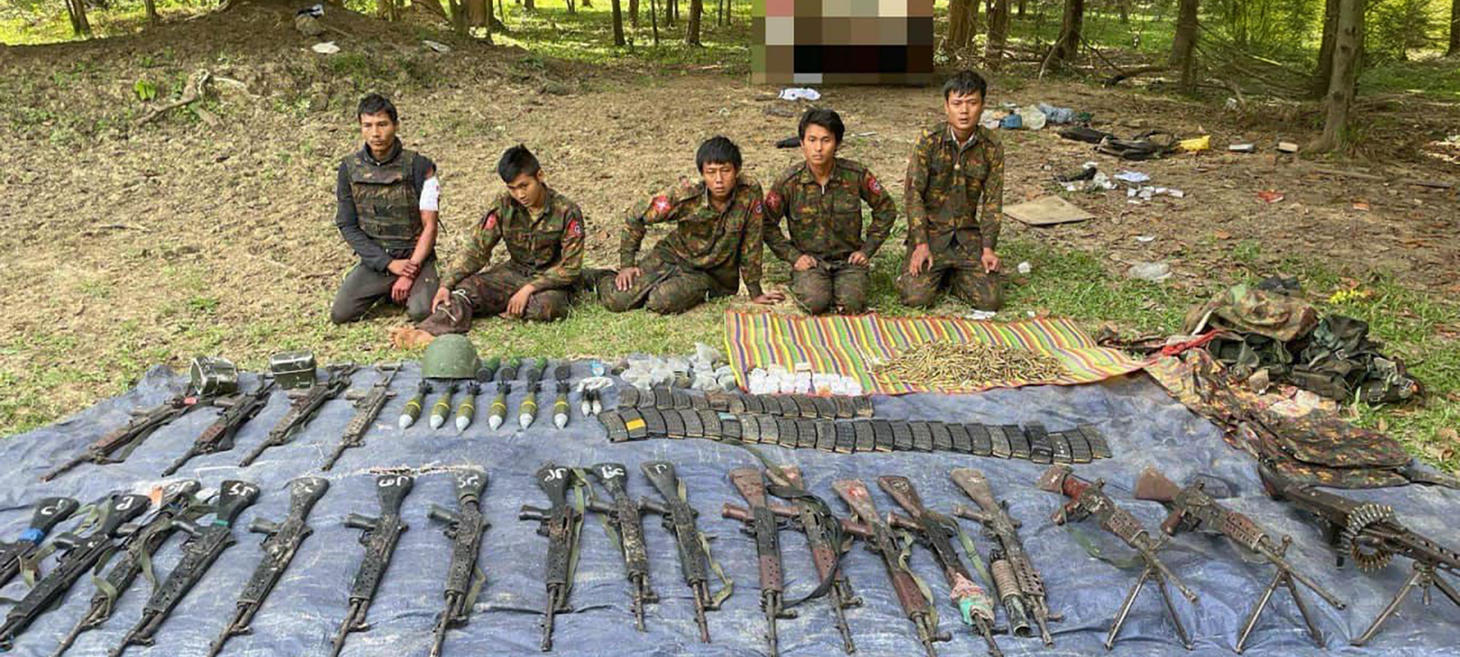
Myanmar Junta Drugs Soldiers to Keep Them Sharp, POWs Say
According to prisoners of war, Myanmar's military junta is reportedly administering drugs to its soldiers to enhance their alertness and combat performance. These claims suggest that soldiers are being given methamphetamine and other stimulants to maintain high levels of energy and focus during operations. This practice raises concerns about the ethical treatment of soldiers and the potential long-term health effects of drug use. The allegations also highlight the extreme measures the junta is taking to maintain control and effectiveness in its military operations amidst ongoing conflicts in the country.
Economy
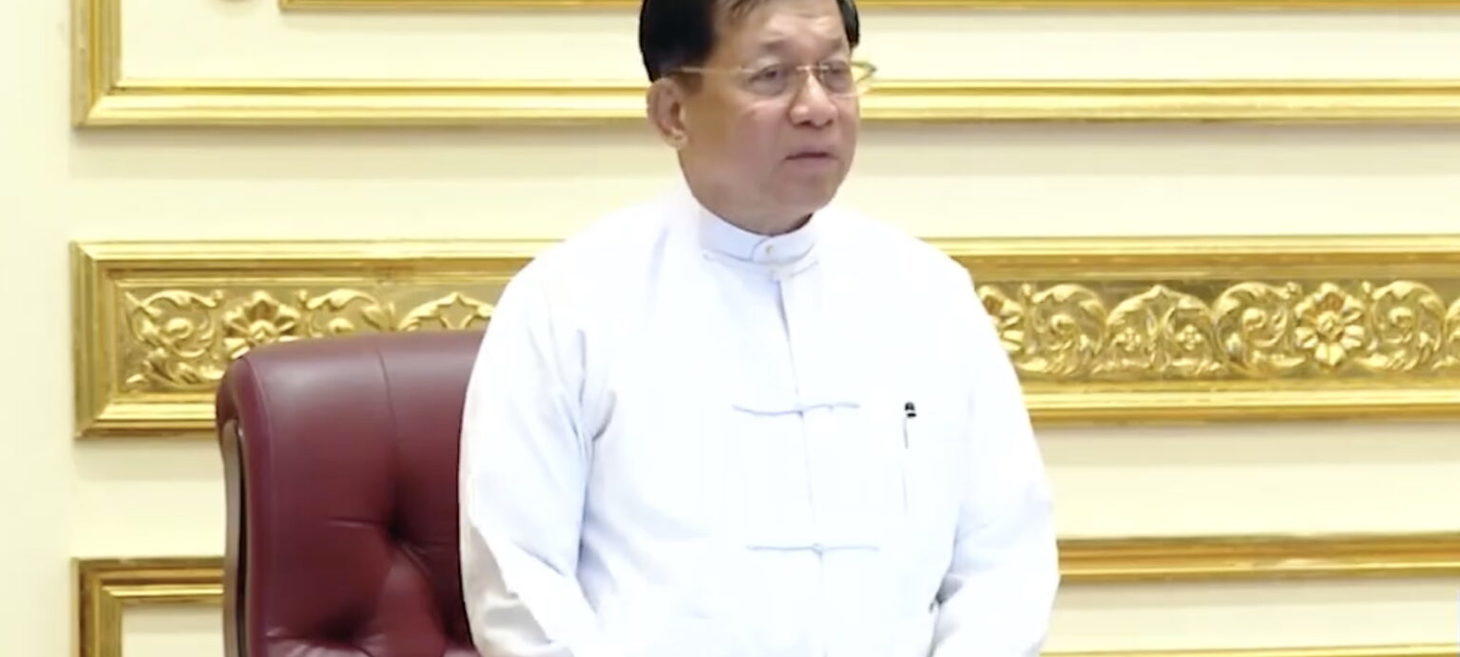
Myanmar junta leader admits to errors in economic data
Senior-General Min Aung Hlaing, Myanmar’s junta leader, has admitted to discrepancies in economic data reported by junta ministries, acknowledging that inaccurate statistics are undermining economic planning. Speaking at a military council meeting, he highlighted gaps between reported agricultural surpluses and actual export figures, particularly for crops like rice. He urged ministries to base decisions on thorough investigations to avoid planning errors. This rare admission comes amid Myanmar's worsening economy since the 2021 coup, despite the regime's claims of growth. Analysts attribute the data inaccuracies to officials exaggerating figures to appease superiors and a lack of transparency, as access to trade data and budget information has been increasingly restricted under the junta. The regime’s censorship of economic data and reliance on misleading reports further obscure the country’s economic challenges, including high unemployment and shortages of essential goods.
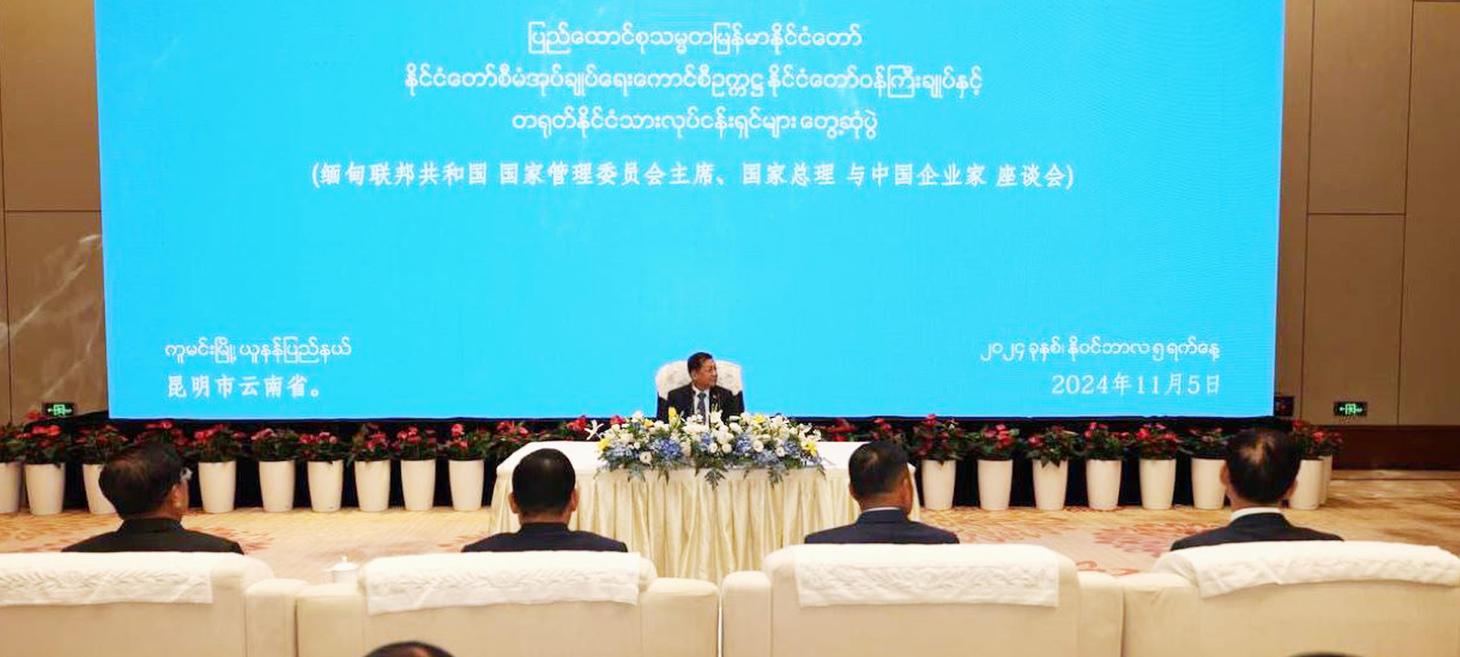
Myanmar Regime Set to Resume New Yangon City and Other Chinese Projects
The Myanmar military regime is planning to resume the New Yangon City project and other Chinese-backed infrastructure initiatives that were previously stalled. These projects are part of the regime's strategy to strengthen economic ties with China and attract foreign investment despite international sanctions and domestic instability. The New Yangon City project, in particular, is a significant development aimed at expanding the economic landscape of the region. By reviving these projects, the junta seeks to boost economic growth and create job opportunities, while also reinforcing its political alliance with China. However, these moves have raised concerns among local communities and environmental groups about potential negative impacts and the lack of transparency in project implementation.
Ethnic Issues
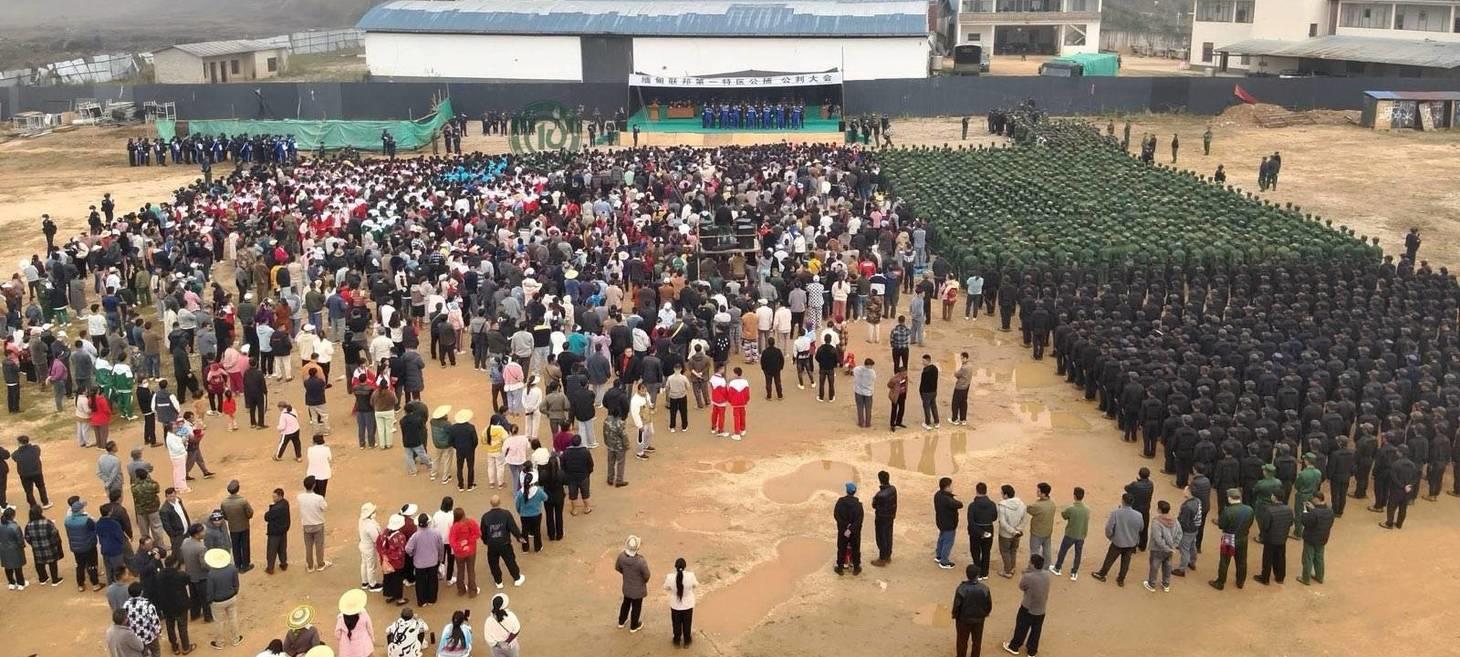
Kokang army executes six alleged criminals in town under its control
The Myanmar National Democratic Alliance Army (MNDAA), an ethnic armed group, executed six individuals in Laukkai, the Kokang region's capital in northern Shan State, on Thursday after sentencing them earlier that day. Among 14 convicts tried for crimes such as kidnapping, extortion, sexual abuse, and murder, seven were sentenced to death, with six executions carried out the same day, including a woman convicted of murdering her husband. The sentencing and executions took place publicly in Laukkai, a town near the Chinese border that the MNDAA has controlled since capturing it from junta forces in January. The incident highlights the group's exercise of authority in the Kokang region, which it claims as the ethnic homeland of the Chinese-speaking Kokang people.
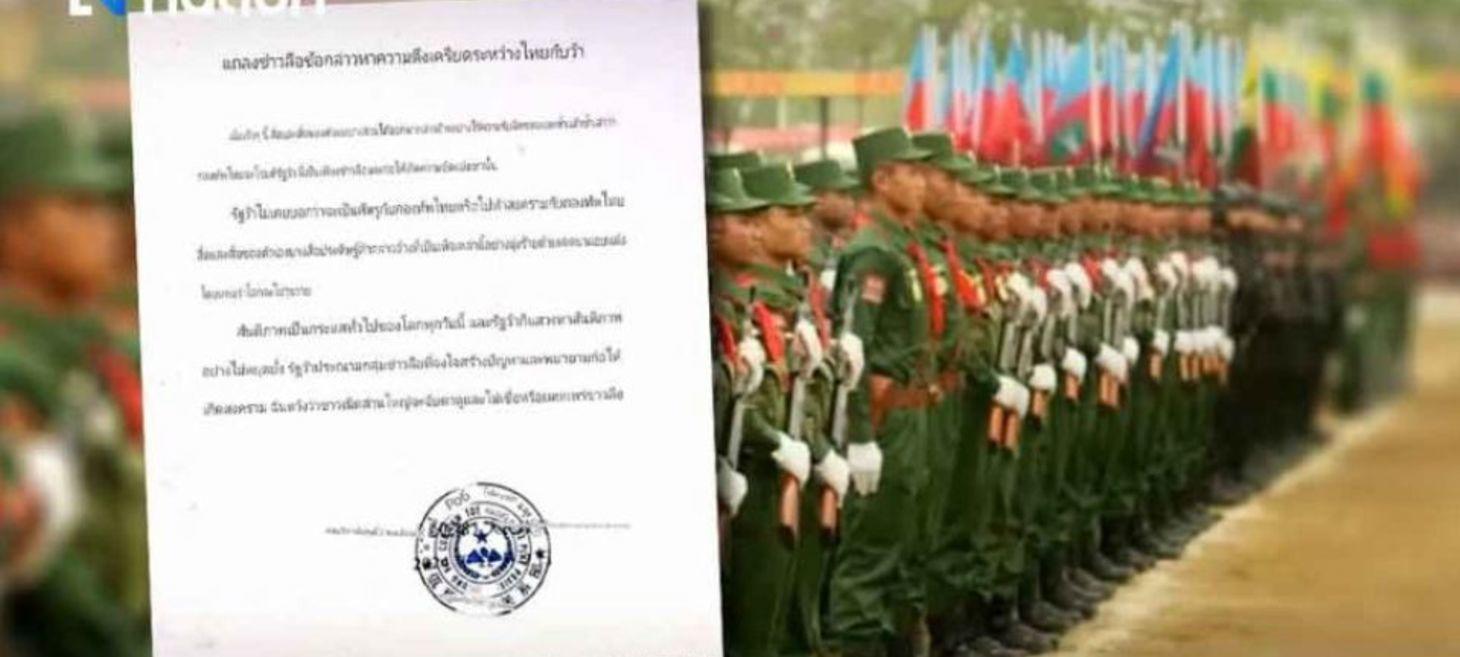
Myanmar’s Wa State claims rumours of confrontations with Thai soldiers false - asianews.network
The Wa State in Myanmar has issued a statement refuting rumors of confrontations with Thai soldiers, emphasizing that it has never declared Thailand an enemy or intended to engage in conflict with the Thai military. The statement, released in Thai, English, and Chinese, accused certain media outlets, including some within Wa State, of fabricating these rumors to create conflict and stir trouble. Wa State reiterated its commitment to peace as a global priority and condemned those spreading false claims with hidden agendas aimed at inciting unrest. The statement urged the public, particularly social media users, to remain vigilant against such misinformation.
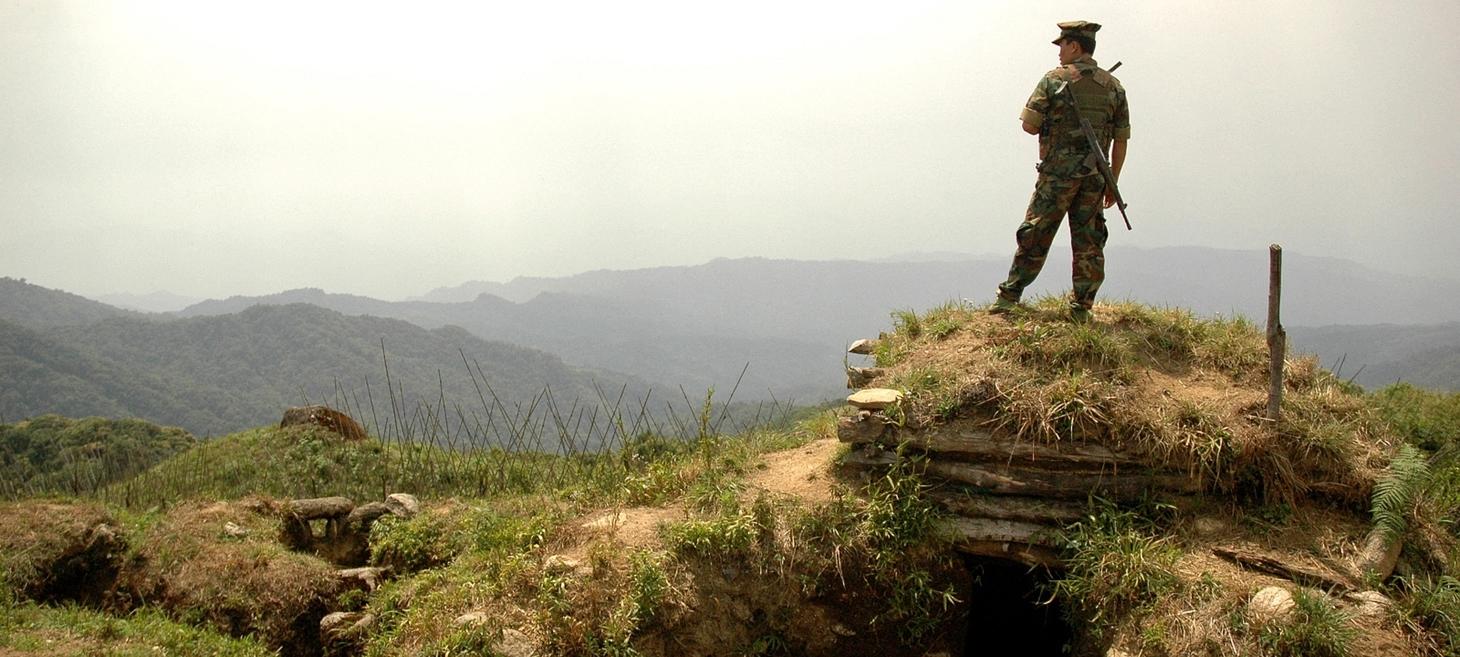
Treading carefully: KIO navigates rocky ethnic terrain in new territory
The Kachin Independence Organization (KIO) has seized mineral-rich territory on Myanmar's border with China, previously controlled by Zahkung Ting Ying's Border Guard Force (BGF). This area, known for rare earth mining, presents both opportunities and challenges for the KIO, which must navigate ethnic tensions and governance issues in a diverse region. The KIO's takeover follows dissatisfaction with Zahkung Ting Ying's leadership, marked by exploitation and collaboration with Chinese interests. The KIO aims to differentiate itself by promoting inclusivity and better governance, but faces challenges such as ethnic divisions and the need for accountability among its forces. Locals hope the KIO will invest in public services and manage resources responsibly, avoiding the mistakes of its predecessors.
Foreign Affairs
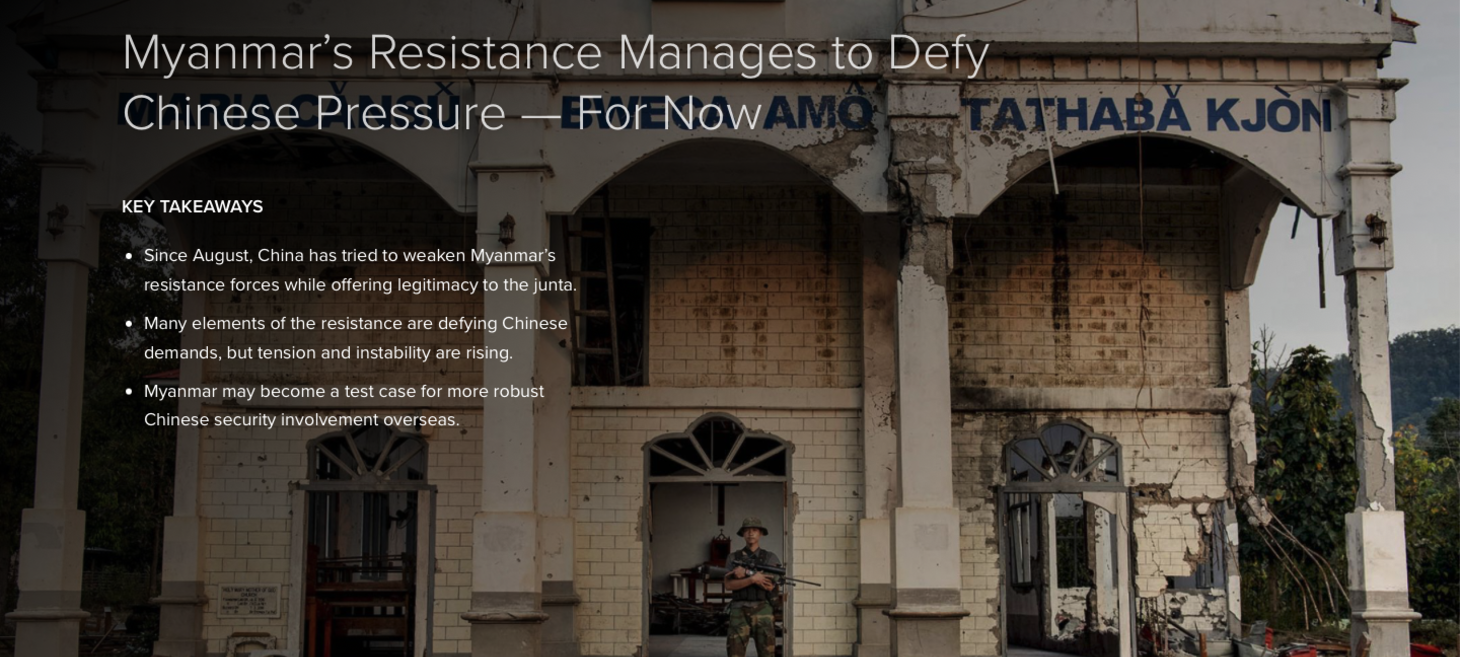
Myanmar’s Resistance Manages to Defy Chinese Pressure — For Now
In early August, resistance forces in northern Myanmar achieved a significant victory by defeating the Myanmar military's northeastern command, gaining control over large territories in northern Shan State. This success invigorated the resistance but prompted a strong reaction from China, which imposed punitive measures on key resistance groups and supported military airstrikes to reclaim lost territories. Despite China's efforts, resistance forces have continued their activities, even capturing rare earth deposits, challenging China's market dominance. China's response, including legitimizing Myanmar's junta leader Min Aung Hlaing, has broader implications, potentially setting a precedent for more aggressive actions in other regions. The resistance's resilience offers opportunities for international actors like the U.S. and India to counter China's influence. The collapse of a Chinese-brokered ceasefire led to renewed conflict, with resistance forces rapidly capturing military posts and townships. China's intervention included cutting resources to resistance areas and pressuring ethnic armed organizations to comply with its demands. Despite these pressures, resistance groups like the Kachin Independence Army have maintained their stance, impacting China's rare earth supply and prompting internal changes within China's mining sector. The situation in Myanmar serves as a test case for China's overseas security involvement, with resistance forces gaining significant leverage over both China and the military regime.
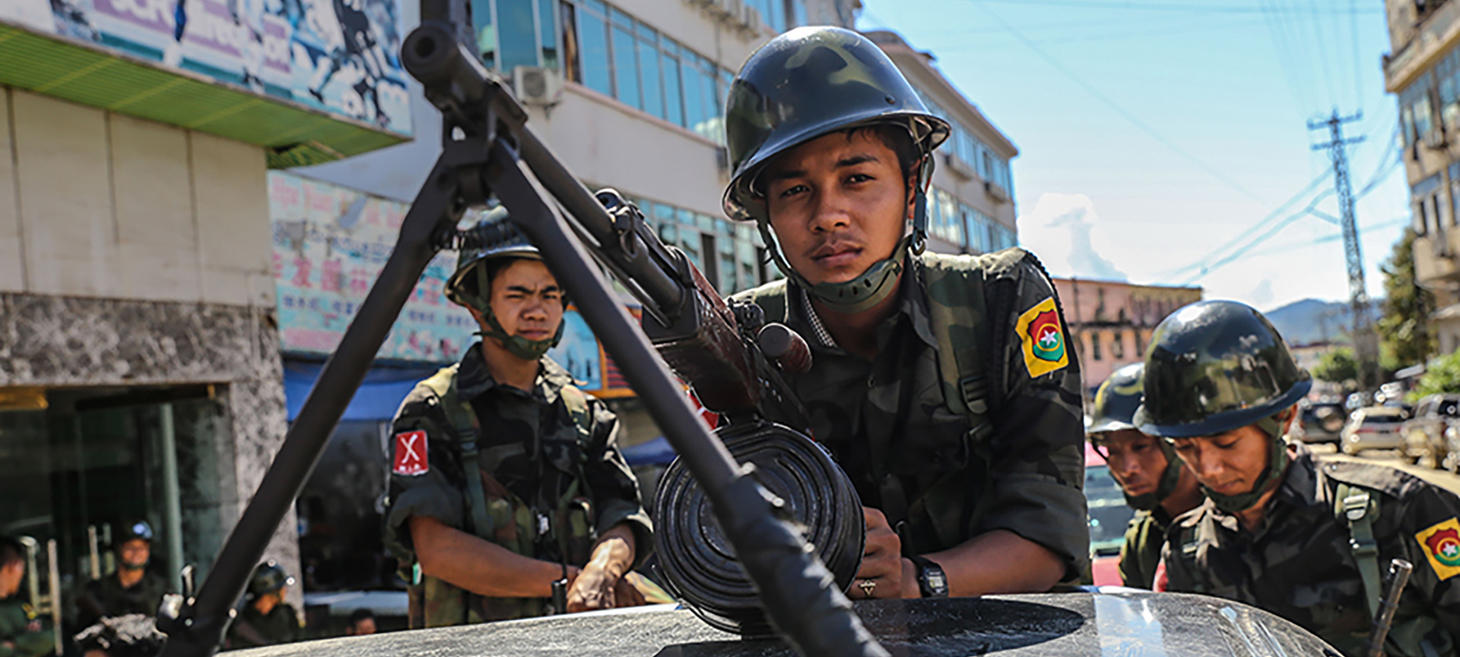
Myanmar’s KIA Sends Delegation to China for Talks
Myanmar's Kachin Independence Army (KIA) has sent a delegation to China for discussions, marking a significant diplomatic engagement. The talks aim to address regional stability and the ongoing conflict in Myanmar, particularly in Kachin State. This move comes amid escalating tensions and military activities in the region, with China playing a crucial role as a mediator due to its strategic interests and influence in Myanmar. The KIA's engagement with China highlights the importance of international diplomacy in seeking resolutions to internal conflicts and maintaining regional peace.
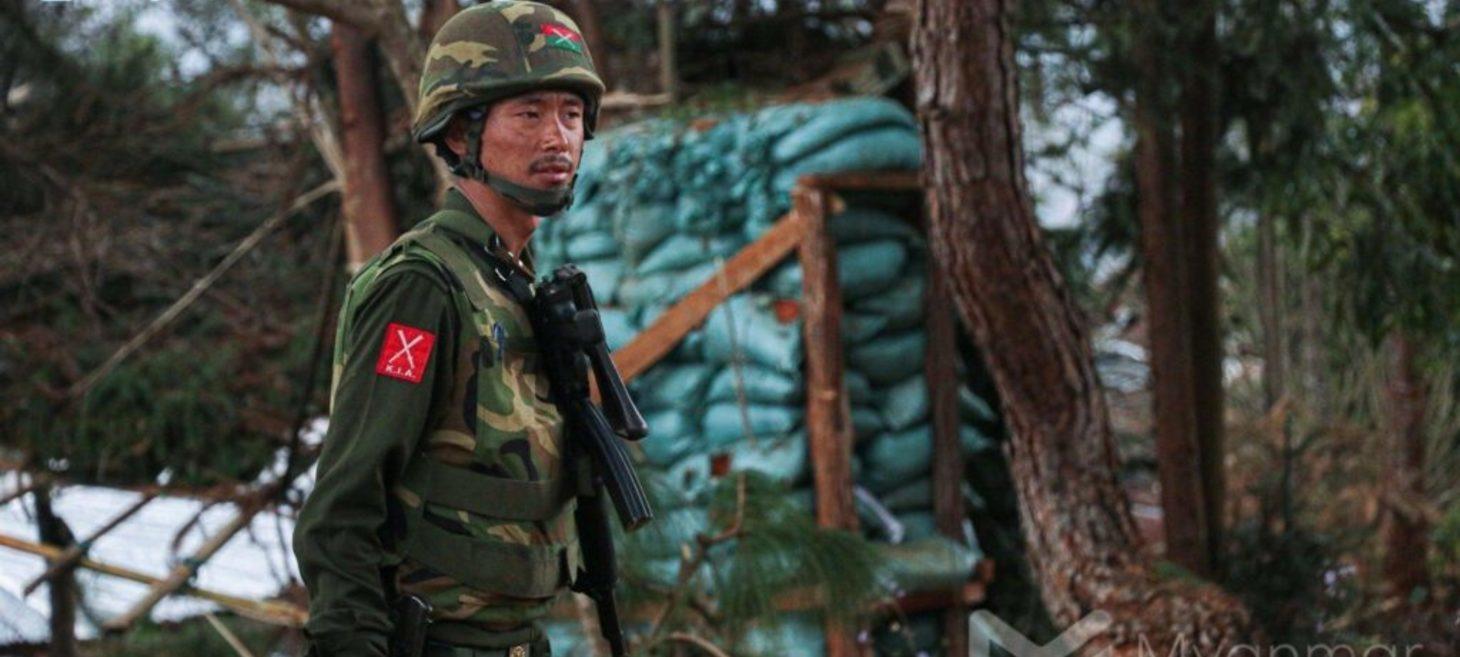
Senior Chinese officials hold private talks with anti-junta Kachin organisation
Military sources have reported that senior Chinese officials held private talks with the leadership of the Kachin Independence Organisation (KIO) in China. The meeting included KIO chair Gen. N’Ban La, general secretary La Nan, and vice chief of staff Gen. Gun Maw. Although the Chinese attendees were not named, at least one was said to be of higher rank than Deng Xijun, the usual senior Chinese envoy in such discussions. The talks likely addressed recent KIO captures of junta bases along the Kachin State-China border, reflecting China's strategic interest in regional stability and its role as a mediator in Myanmar's internal conflicts.
General News
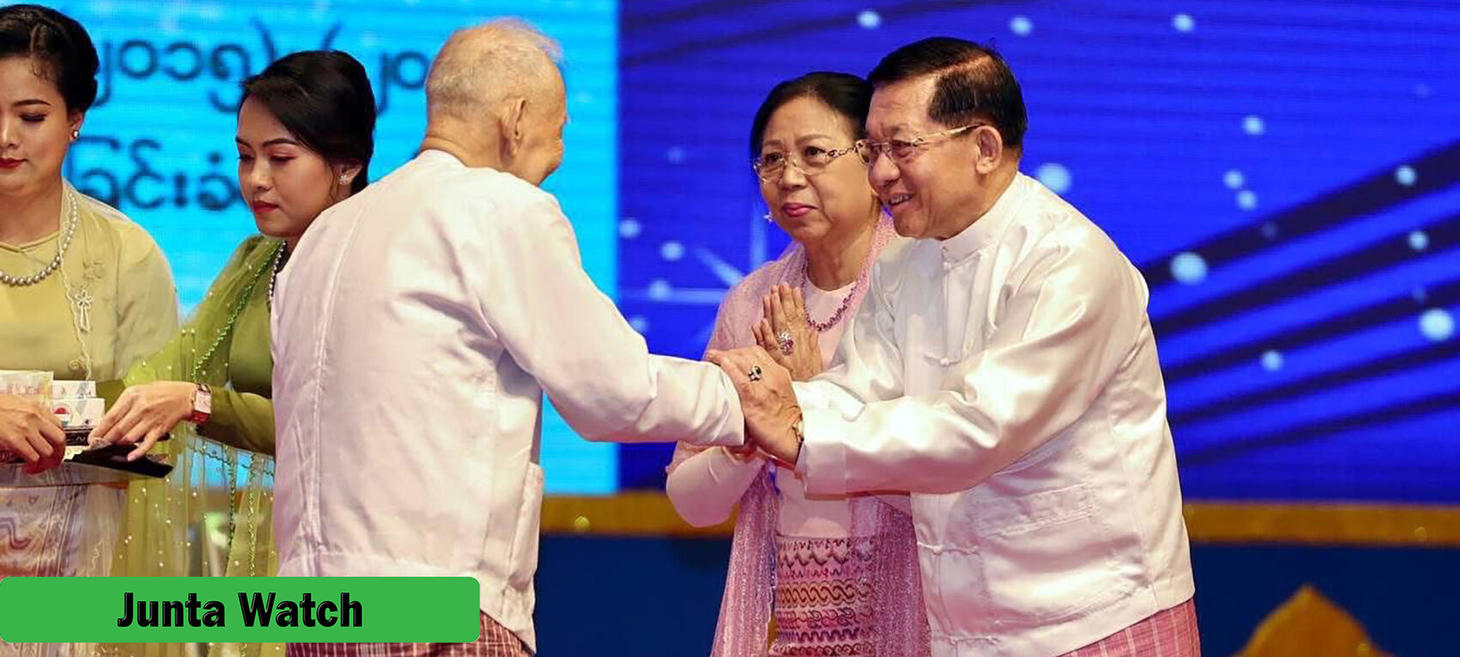
Allies Rush to Back Sham Poll; Min Aung Hlaing Finally Confesses
The article discusses the recent developments in Myanmar, where allies of the military junta have rushed to support a controversial election process, which many view as a sham. The junta leader, Min Aung Hlaing, has finally admitted to certain failures, although the specifics of these confessions are not detailed in the summary. The situation highlights the ongoing political turmoil and the international community's skepticism regarding the legitimacy of the electoral process under the military regime. This move by the junta's allies is seen as an attempt to legitimize the regime's hold on power despite widespread criticism and opposition.
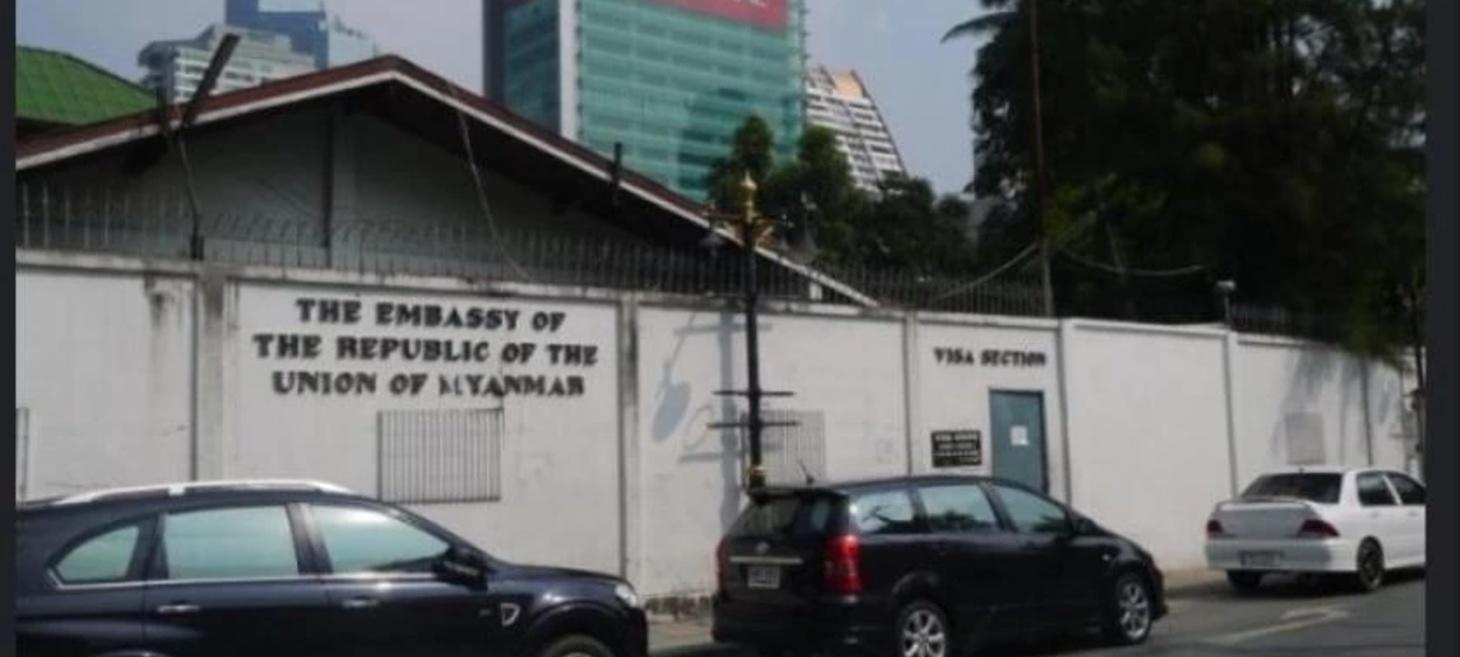
Myanmar Embassy in Thailand denies 1,800-baht slip fee for 2-year work permit
The Myanmar Embassy in Thailand has refuted claims that a 1,800-baht slip fee is required for Myanmar workers to obtain a two-year work permit in Thailand. The Thai government has announced that workers with a passport or Certificate of Identity (CI) will be granted temporary residence and work permits. The embassy clarified that it will not collect any fees for this process and advised workers to follow the guidance of relevant Thai departments. Workers are required to pay a two percent tax directly to Bangkok Bank and 7/11 stores when exchanging their passports and CI books. The embassy has coordinated with Thailand's Department of Labour to facilitate the renewal of CI books and the issuance of pink cards for undocumented workers. Despite this, some agencies and brokers in Thailand are reportedly charging high fees for temporary work permits, causing difficulties for workers. The temporary work permits are valid for two years and can be extended for another two years.
Humanitarian
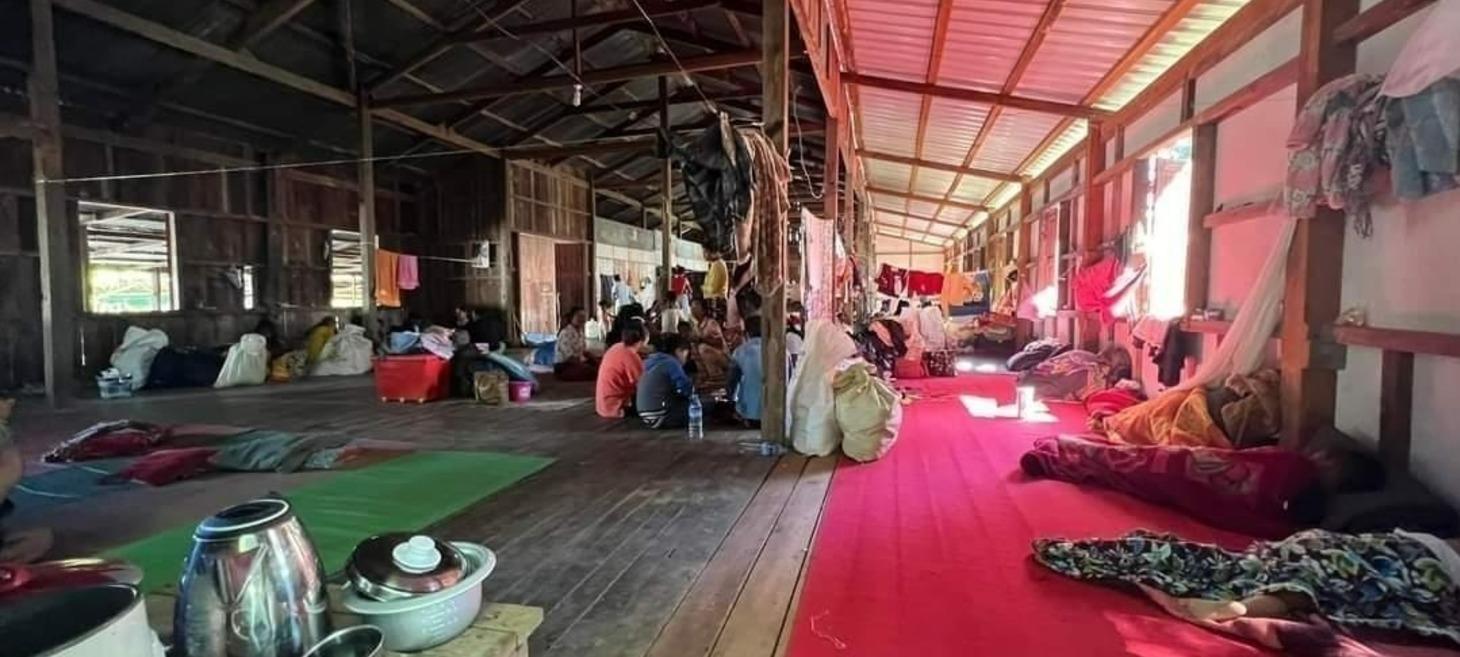
IDPs in Nyaungshwe Township Have to Leave by March 2025
Junta-appointed administrators in Nyaungshwe Township, southern Shan State, have issued an order for internally displaced persons (IDPs) to return to their homes by March 2025. This directive, originating from the Nyaungshwe Township General Administration Office, was communicated to ward and village-level administrators in November. The order affects IDPs from Loikaw Township, Karenni State, who are currently sheltering in monasteries within Nyaungshwe Township. This is not the first such attempt, as a similar instruction was given at the end of 2023 but was not implemented due to escalating conflicts in Loikaw Township. The situation is particularly challenging for many IDPs who have lost their homes to the conflict and are struggling to survive. The ongoing Operation 1111, launched by Karenni resistance forces in November 2023 to capture Loikaw City, has forced many residents to flee, with the elderly and those with chronic conditions suffering the most.
Military
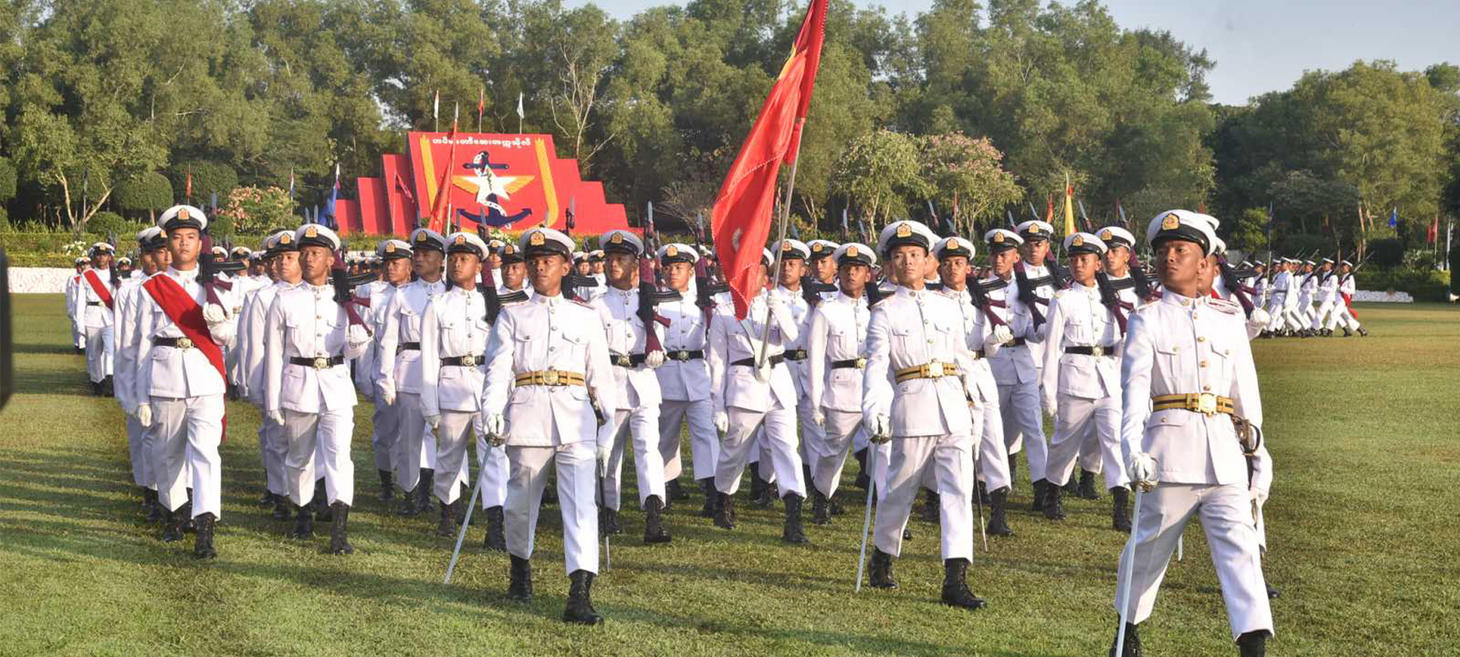
Myanmar Junta Fortifies Garrison Town Ahead of Annual Graduation Ceremonies
The Myanmar military junta has increased security measures in the garrison town of Pyin Oo Lwin ahead of the annual graduation ceremonies at the Defense Services Academy. This move is part of the junta's efforts to ensure the safety of high-ranking officials and guests attending the event, amid ongoing conflicts and resistance activities in the country. The town has seen a significant military presence, with additional troops and equipment being deployed to prevent any potential disruptions. These heightened security measures reflect the junta's concerns over possible attacks by resistance forces, who have been actively opposing the military regime since the coup. The fortified security underscores the tense atmosphere in Myanmar as the junta continues to face widespread opposition and unrest.
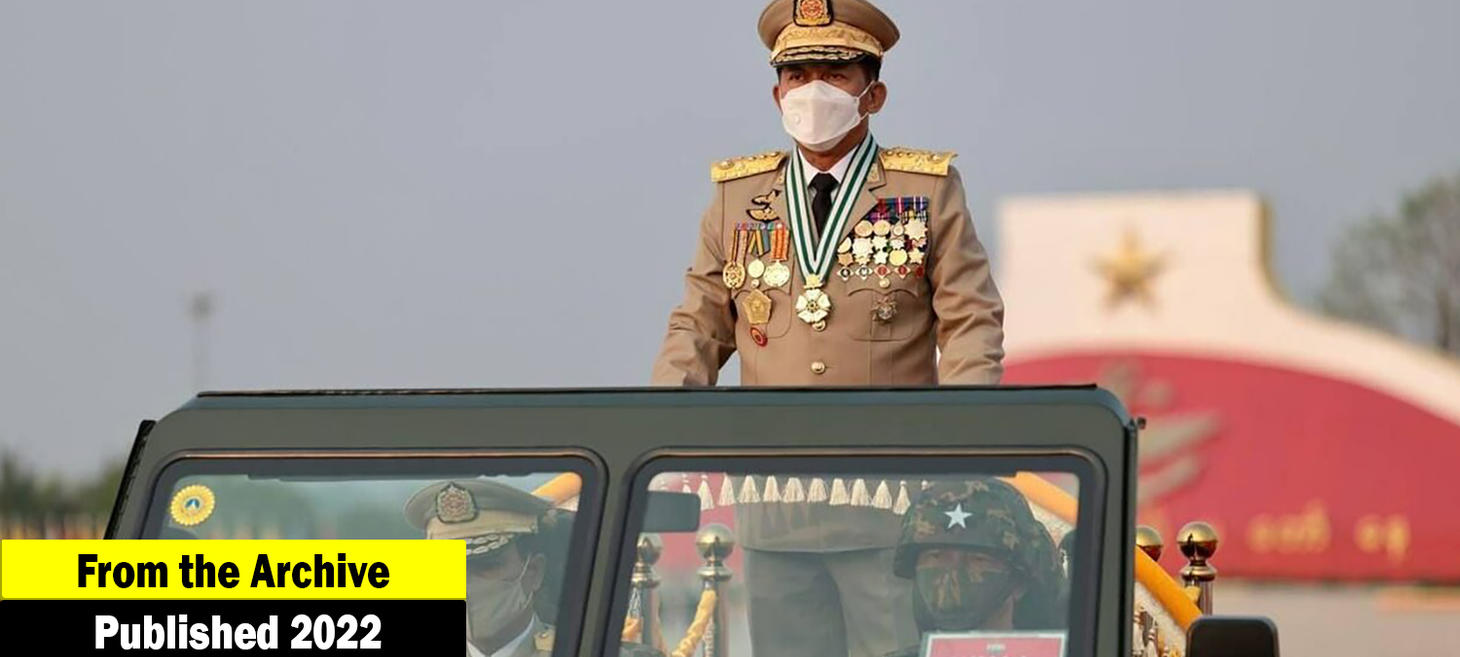
On Leadership and Power in Myanmar
The article “On Leadership and Power in Myanmar” from The Irrawaddy discusses the complex dynamics of leadership and power within Myanmar’s political landscape. It explores how historical, cultural, and socio-political factors shape the exercise of power, highlighting the challenges leaders face in navigating ethnic diversity, military influence, and the quest for democratic governance. The piece likely delves into the personal experiences and reflections of various leaders, offering insights into their strategies for maintaining or gaining power amidst ongoing conflicts and transitions. However, due to the failure to read the attachment, this summary is based on the general context and themes typically covered by The Irrawaddy in its analyses of Myanmar’s political scene.
Sanctions

Maker of Jeff Bezos’s yacht fined for using Myanmar ‘blood timber’
Dutch yacht builder Oceanco has been fined €150,000 ($159,000) for using Myanmar teak, often referred to as "blood timber," on Jeff Bezos’s $500 million superyacht, Koru. The fine was imposed for failing to investigate the origin of the teak, violating the EU Timber Regulation (EUTR), which prohibits imports of timber linked to illegal trade and human rights abuses. Myanmar teak, prized for its quality and water resistance, is largely sourced illegally and funds Myanmar's military junta. Oceanco, which purchased the teak from a Turkish supplier, claimed it stopped using Myanmar teak in 2019 but acknowledged its oversight in this case. Advocacy groups welcomed the prosecution as a step toward enforcing sanctions and combating illicit trade that finances the junta and harms the environment. Dutch authorities also flagged the yacht's deck teak, sourced via a German trader, for further investigation by German authorities.